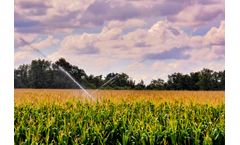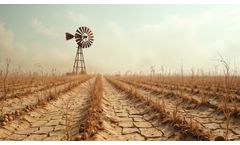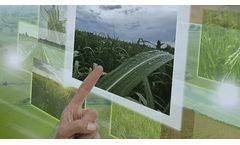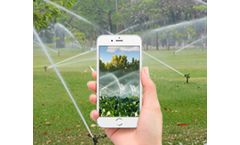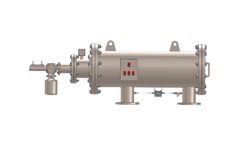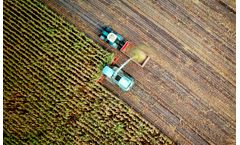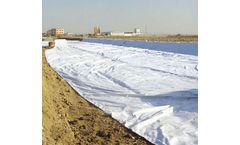Irrigating Farmers Articles & Analysis
114 articles found
Field Irrigation Systems are essential in agriculture since they help provide water to plants where rain may be erratic or unavailable. Given the ever-rising population around the globe, food production is on the rise, and thus, there is a need to maximize agricultural production. Therefore, contemporary field irrigation systems have developed as an all-important tool to facilitate crop growth, ...
The irrigation process in agriculture, landscaping, and water management is crucial in its work with climate change-altered efficiency and sustainability. When the global temperature increases, so does the irregular supply of water, which directly affects irrigation systems across different parts of the globe. We pick from here and discuss further how climate change impacts irrigation and the ...
However, natural rainfall is often unpredictable, insufficient, or unevenly distributed across regions, making irrigation systems a vital component of modern farming. With effective irrigation, many farmers would be able to produce enough crops to meet both local and global food demands. To make irrigation systems function ...
The irrigation sector has a key role to play in ensuring food security in the current global context, marked by a changing geopolitical situation, climate change and the scarcity of water resources. Thus, agricultural irrigation is facing new challenges that mean irrigation associations will need to digitalize their processes. Initiatives such as Spain’s PERTE (Recovery, Transformation and ...
ByIdrica
Enhanced Decision-Making: Through real-time data collection and analytics, smart irrigation enables farmers to make informed decisions about irrigation scheduling, resource allocation, and crop management practices. ...
ByJXCT
Irrigated agriculture is an integral part of the rural economy, but increasing water use creates several challenges, not least meeting the food demands of a growing population while using as little water as possible to save energy. In this article, we’ll look at the key challenges for UK irrigation in agriculture, to shed light on what the industry must do to preserve itself. ...
This can save farmers time and reduce labor costs. Remote Monitoring: These systems can be remotely monitored and controlled, allowing farmers to manage their irrigation systems from anywhere. ...
ByJXCT
Improve crop yields: Through precise water management, intelligent irrigation controllers enable farmers to optimize crop growth and increase yields. ...
By using smart soil sensors, farmers can accurately grasp the dynamic changes in soil properties and take corresponding measures to improve product quality. ...
Benefits of Automatic Irrigation Systems: Automatic irrigation systems offer a range of benefits to gardeners and farmers. ...
ByJXCT
In the agricultural sector, automatic irrigation control systems have become a must-have device that can help farmers easily manage their fields, achieve efficient irrigation, and improve crop yield and quality. ...
ByJXCT
Soil moisture levels fluctuate significantly over time and space, influenced by factors such as rainfall, evapotranspiration, irrigation, and soil type.Measuring soil moisture is crucial for various reasons:Optimizing irrigation schedules: Accurate soil moisture data allows farmers and gardeners to irrigate their crops and plants ...
Soil EC sensors offer a valuable tool for irrigation management, allowing farmers to monitor soil moisture levels and make informed decisions about when and how much to irrigate. ...
Everyone knows the environmental impact carbon emissions have on the environment, speeding up climate change and causing extreme weather conditions. However, fewer people are aware of the importance of using water conservatively, as resources are quickly diminishing across the world, which not only exacerbates climate change, but could also put human and animal life at ...
The Importance of Self-Cleaning Irrigation Water Filters Clean irrigation water is essential for the health and productivity of crops. ...
Mechanical harvesting versus chemical herbicides is the great debate when it comes to tackling water weed problems. When you’re faced with an infestation of any of the water weeds we’ve covered in previous articles (and there are plenty more to talk about as well), you can feel so overwhelmed and frustrated that you just want the problem to go away as quickly as possible. This causes ...
This precision is critical for various aspects of farming, including planting, harvesting, and irrigation. Farmers can ensure that seeds are planted at the exact depth and spacing required for optimal growth, leading to higher yields and reduced resource waste. ...
Introduction Woven geotextile, a remarkable engineering material, has gained significant attention due to its diverse applications in various fields. From coastal protection projects to agricultural irrigation systems, woven geotextile proves to be a versatile solution that offers a wide range of benefits. This article explores the multifunctional applications of woven geotextile and its pivotal ...
Climate change increases the vulnerability of water systems and the agricultural sector in the region, particularly smallholder farmers whose crop yields are already at a very low level compared to regional standards. ...
Acres: 600 Goals: Minimize pumping costs Minimize water usage Increase yields Equipment Installed: Pressure Sensors Soil Sensors Dendrometers 1 Weather Station Information Provided: Our satellite imagery allowed this grower to identify trees with less vigor in particular areas. They discovered that these areas had been under-watered since planting because the irrigation was not ...
ByFarm(x)

